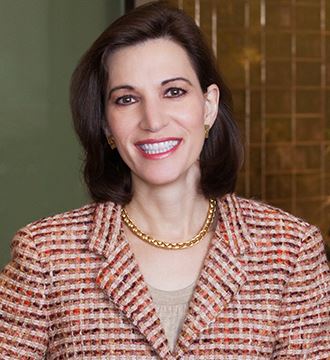Diana Liebmann, partner, Haynes and Boone, San Antonio, was named in Texas Lawyer’s 2016 list of top women in energy law.
“We are proud to profile the honorees of our 2016 Top Women in Energy awards. The following women are recognized for their work in the area of energy law—an area that has been particularly volatile this past year,” the magazine Texas Lawyer said in its introduction to the 2016 list of top attorneys.
“The women profiled in the following feature represent all areas of energy law, from regulatory to bankruptcy, to mergers and acquisitions, to clean energy and litigation.
“Although we have traditionally featured a ‘Women in Law’ issue, this year it is particularly relevant that we honor women that are in a challenging area. And to add to the uniqueness of this feature, we decided to personalize these profiles by asking the honorees to answer a set of questions. The Q&A answers have been edited for length and style.”
Profile Questions: Diana Liebmann, partner, Haynes and Boone, San Antonio
Please write a brief summary of your career/background.

I knew I wanted to be an electric regulatory and transactional lawyer before I graduated from college. It was the early 1990s and the electric power markets were just starting to open up. I was a legislative aide and worked on wholesale power deregulation legislation. After I graduated from college Texas was still restructuring the wholesale power market and had begun retail market restructuring. I knew I wanted to work to further develop these markets both as a regulatory lawyer and as a transactional lawyer. To be effective as a regulatory lawyer, an understanding of the commercial markets is key. At the same time, to be an effective transactional lawyer, an understanding of the regulatory framework, including anticipating changes to regulation, is critical. The interplay of both of these areas provides opportunities for clients to achieve efficiencies in the market, and it is exciting to assist them in achieving their objectives. I have enjoyed working with great clients and lawyers in this area dealing with complex market and regulatory matters.
What is one word people use to describe you?
Dedicated.
If you weren’t a lawyer, you would be…
A National Park ranger.
Name an energy lawyer who you admire and why.
I admire Buddy Clark (leader of the Energy Practice Group at Haynes and Boone) because he has been a mentor to me and is a leader in the energy community. He is well-respected by his colleagues, peers and clients. Besides all of that, who wouldn’t admire a person who takes the time to write a book about the history of the American oil industry to help educate future leaders in our industry?

What is the most valuable career advice anyone has ever given you?
Understand your clients’ business, their position in the market, and look for opportunities to advance their interests. Having a successful career is not really about you—it is about the things you can do together with your clients.
What is your No. 1 survival tip in a work crisis?
Always keep calm in the knowledge that a crisis is a problem that needs to be solved, like any other, only potentially on a shorter timeline.
What can be done to tackle the energy world gender gap?
The worldwide energy gender gap stems from the worldwide gender education gap. Education is the key to closing the gap. Daughters need to be educated in the same manner as sons. When that happens, the dynamic nature of the energy industry will attract women just as it attracts men.
What is your biggest pet peeve related to working in the energy sector?
Many people don’t understand that we should have a holistic approach to solving our energy needs. A diverse portfolio of fuel sources to provide power is key. That includes a mix of nuclear, coal, wind, solar, natural gas, storage, biomass and fuel sources not yet developed. It includes both utility-scale generation, distributed generation and loads providing demand response. Dependence on one or two fuel sources of generation increases risk. That risk can relate to the lack of availability of fuel, the increased cost of using generation dependent on that fuel (including construction of transmission to bring that particular type of generation to market), or to technical and weather risks (i.e., gas-fired generation freezing in winter, or solar generation being unavailable on a cloudy day). Electricity is a key building block in the economy, and the greater the diversity of the generation asset portfolio, the more efficiently and cost-effectively power can be delivered.
What is your favorite thing about working in the energy sector?
The people who work together to complete projects in the spirit of serving others.
What is your favorite thing to do/place to visit in your down time?
Hiking in national parks.
Diana Liebmann’s full bio at Haynes & Boone may be viewed here. The complete article profiling all winners is available at Texas Lawyer.







